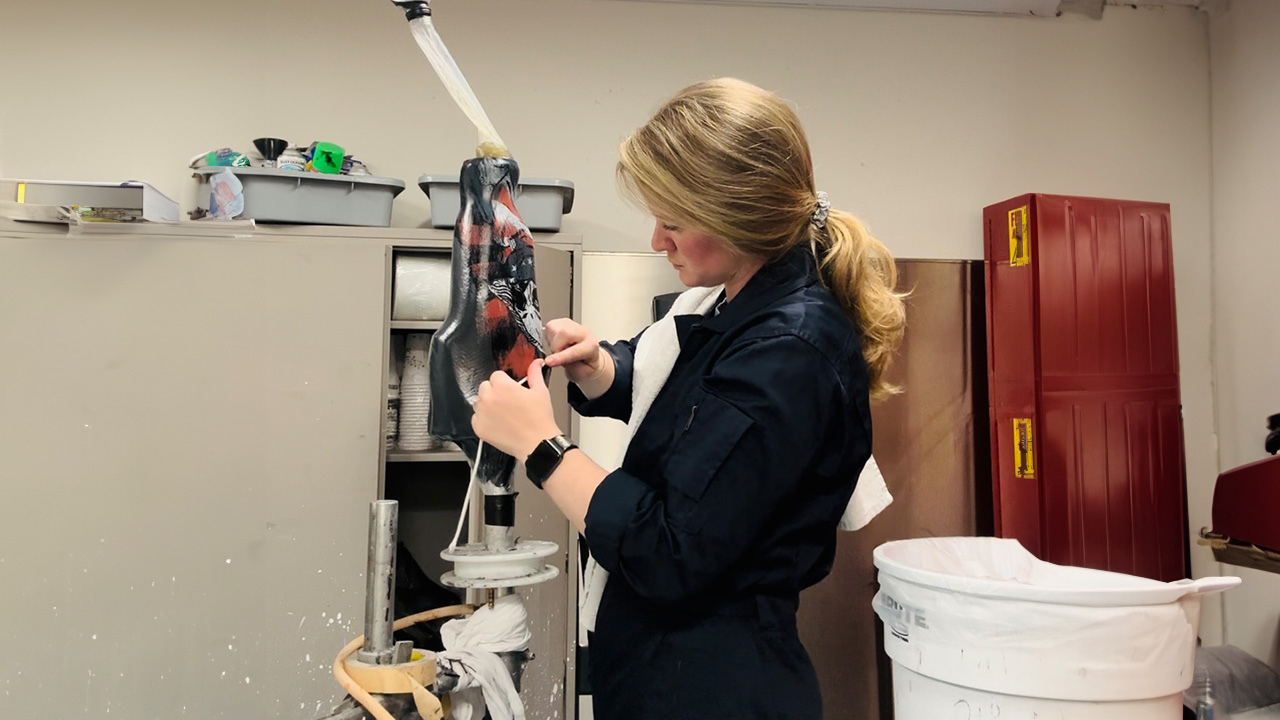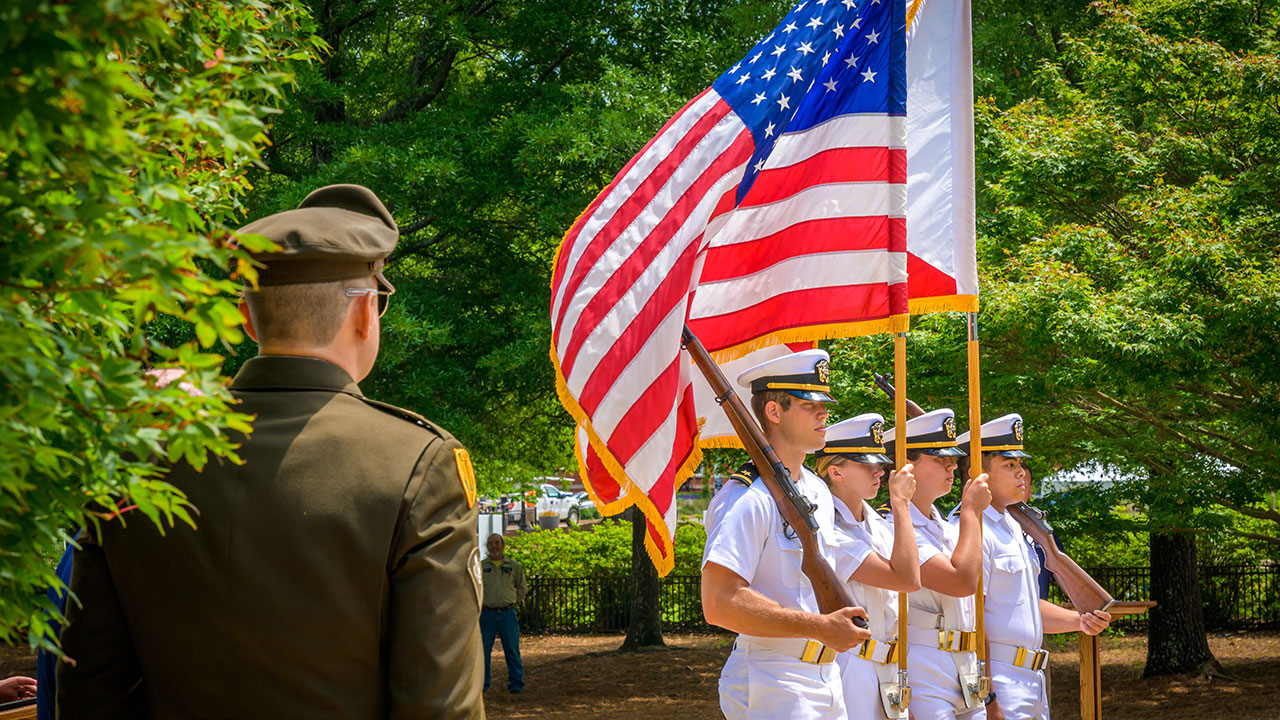content body
When Abby Hinson talks about her job, it’s obvious she has an incredibly unique career.
“Afternoons can be a couple of legs a day, maybe an arm or two,” Hinson said. “I specialize in upper extremities, so ‘arms’ is one of my main focuses.”
Hinson is a prosthetic technician at the Walter Reed National Military Medical Center in Bethesda, Maryland. A 2017 graduate of Auburn University’s industrial design program, she fabricates prosthetics for active and retired military amputees and their family members.
Prosthetic limbs are custom-made devices, individually designed and manufactured one at a time. Since many patients travel to Walter Reed from out of town, Hinson and her colleagues often see new patients on Monday, spend the week fabricating and adjusting their prosthetics and then send them back home with new limbs by Friday.
While most of her patients are being seen at Walter Reed for the first time, Hinson also works with veterans from recent conflicts who are returning for continuing care. The more military personnel deployed, the busier she will likely be at work.
“It kind of comes and goes and flows, depending on what’s going on in the outside world,” she said. “But we’re always busy. There’s always someone who needs new prosthetics or care.”
Hinson was first at Walter Reed when she interned there after graduating from Auburn. She worked for several years in private industry, where she began to specialize in creating prosthetic arms. When she returned to Walter Reed, she found her experience in upper extremity prosthetics was in demand there due to the nature of military combat.
“We get all kinds of amputations, but we have a lot of exposure to upper extremity because of the demographic we work with,” she said. “Before I was hired, they didn’t have somebody on staff who had fabricated upper extremities before.”
An Auburn education
So, how did Hinson use her Auburn education to become a prosthetic technician?
She cites the fabrication and shop work she did as a student as the source of the most important skills she uses every day. One course what really impacted her was School of Industrial and Graphic Design staff member David Gowan’s shop class.
“My entire job is pretty much in a glorified shop, and I have those hands-on skills,” she said. “Sometimes I remember small details from class that come in handy, little things I pick up on that were drilled and taught to us that make manufacturing easier. And a design background definitely helps with problem solving, because no two patients are the same.”
A quick turnaround for a hand
While advances in medicine often unfold slowly, Hinson has seen the world of prosthetic manufacturing evolve drastically since she entered the field seven years ago. As an intern, she was introduced to brand new technology that is now used on a daily basis.
“I remember seeing a company doing a demo of a new hand coming on the market that had never been used before,” she said. “That hand is now one of my favorite hands to use, and they’re currently on version two. It’s been really fun going from seeing a cool, new hand to now, when I know all the benefits and the flaws. I’m lucky to get to see the research projects done here that aren’t out in the open yet.”
Rewarding work
One of the best parts of Hinson’s job is seeing her patients return to their favorite activities and hobbies, or even try activities they never did before their injuries. When seeing new patients, she helps them develop reasonable expectations for recovery and reminds them there’s a learning curve when getting a prosthetic limb. However, she and her colleagues are thrilled to see their successes.
“It’s a wonderful transformation to watch, because obviously, their life has been changed,” she said. “It’s nice to give them all the tools they need to succeed, and it’s so rewarding to see patients come full circle. I have quite a few that every time you see them, you can’t help but smile at all the progress they have made.’”
Finding Auburn fans
Hinson loves to attend Auburn football games, but she doesn’t get back to campus nearly as much as she’d like. However, she knows she’s not the only Tigers fan at Walter Reed, because she occasionally sees the Auburn logo on a backpack or a ball cap. Just a few weeks ago, she noticed a co-worker wearing Auburn socks, and she is thrilled she now has someone to “War Eagle” in the hallways at work.
“We’ll walk down the hall and say, ‘War Eagle,’ and then we’ll just walk by and continue on our day,” she said. “I get extremely excited about it, and my other coworkers don’t understand. But it’s just a nice little way of saying ‘Hi.’”










